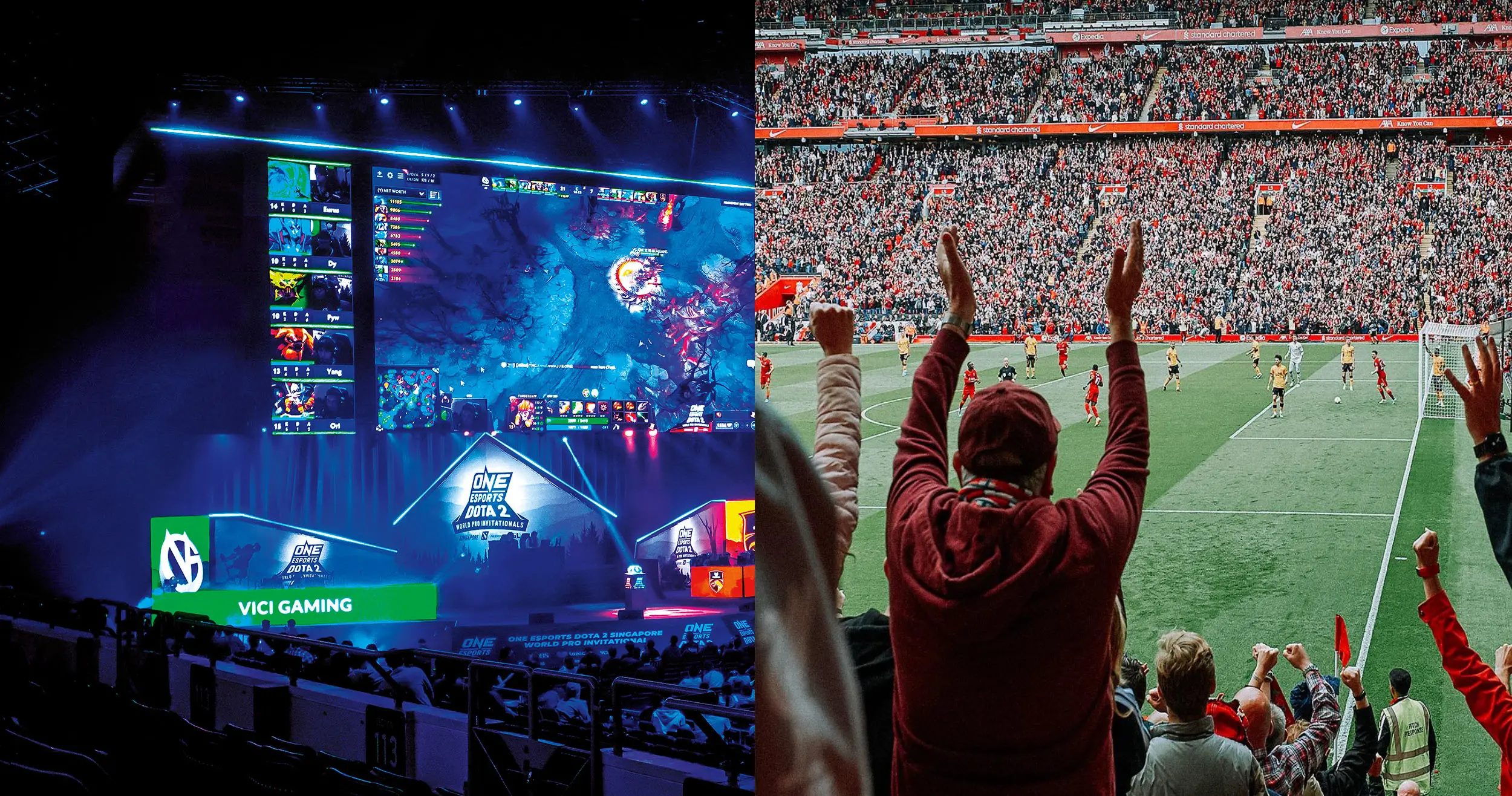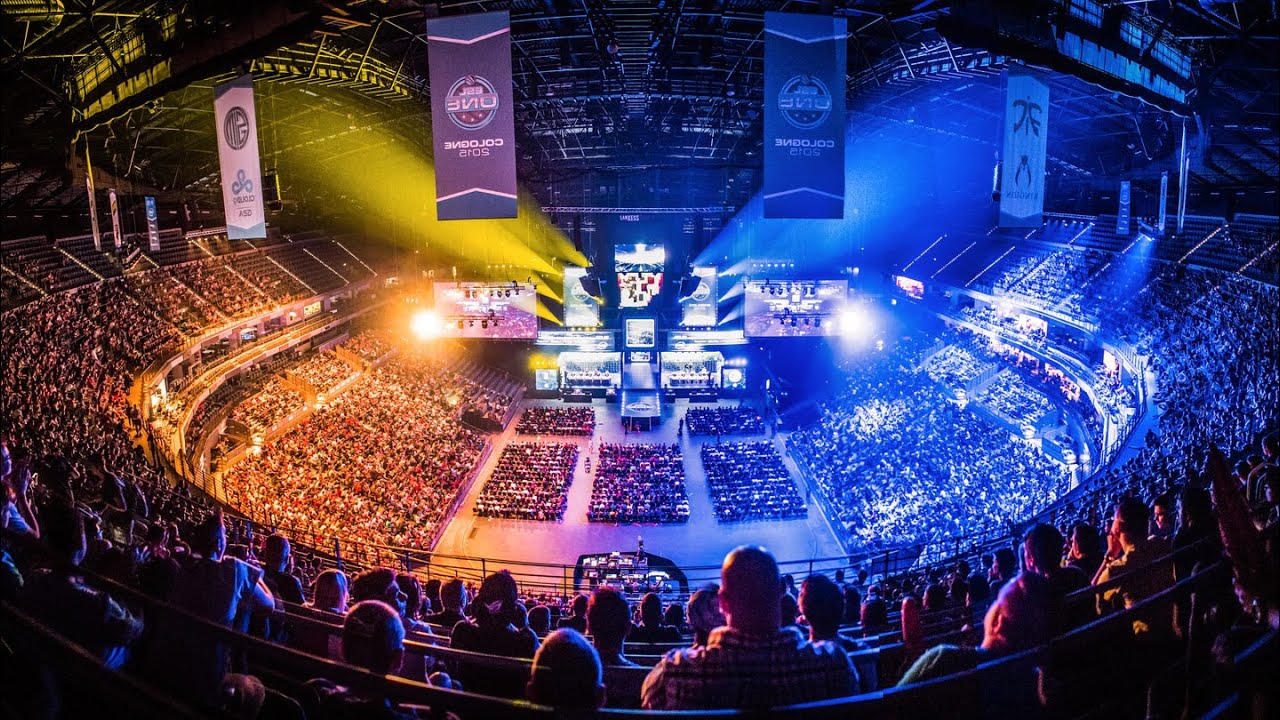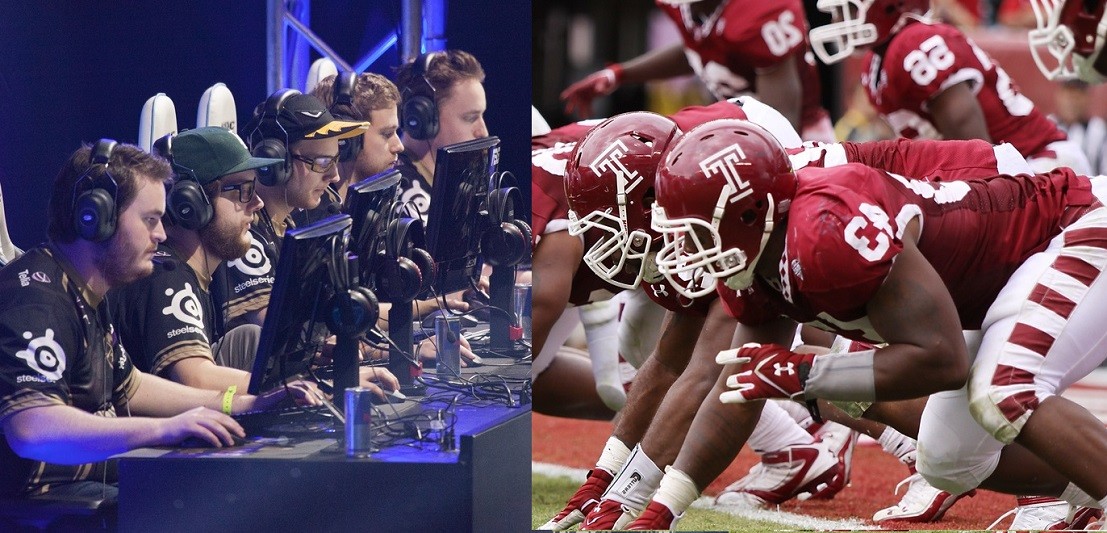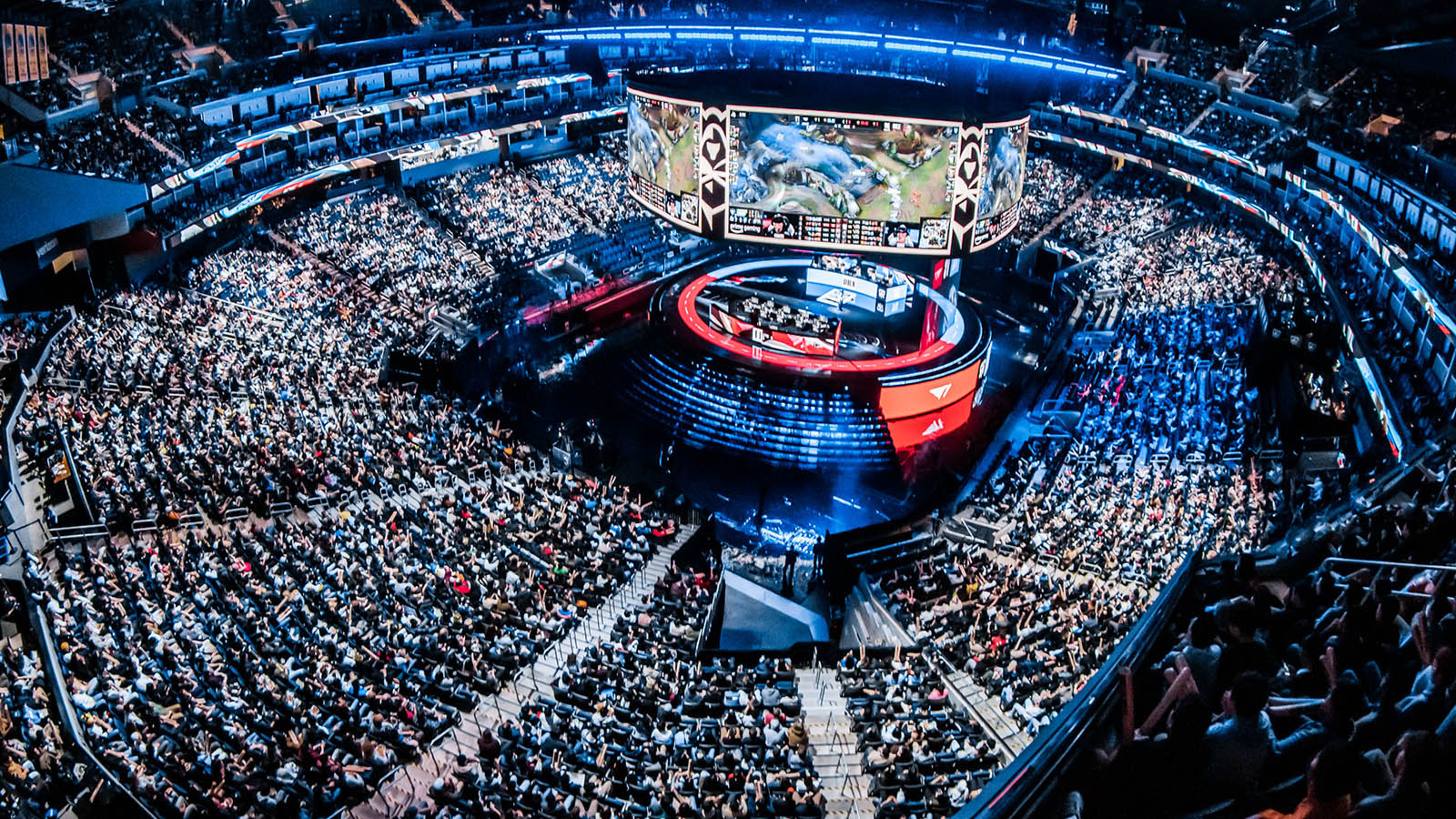Esports Vs Traditional Sports - A Comparative Analysis
In the ever-evolving landscape of competitive entertainment, the clash between Esports vs Traditional Sports has become a prominent talking point. This article aims to dissect the key differences and similarities between these two worlds, shedding light on their respective strengths, fanbases, and the future trajectory they may follow.
Author:Henrik SchmidtReviewer:Gabriel MartinezFeb 11, 20242.6K Shares35.6K Views

In the ever-evolving landscape of competitive entertainment, the clash between Esports vs Traditional Sportshas become a prominent talking point. This article aims to dissect the key differences and similarities between these two worlds, shedding light on their respective strengths, fanbases, and the future trajectory they may follow.
The Rise Of Esports - A Digital Revolution
The Evolving Landscape
Esports, a portmanteau of electronic sports, has undergone a transformative journey, evolving from its humble beginnings into a global phenomenon that rivals and, in many ways, surpasses traditional sports. The world of competitive video gaming has birthed a new breed of athletes, challenging preconceived notions of sportsmanship and athleticism.
The Virtual Battlegrounds
In the realm of esports, diverse titles such as League of Legends, Dota 2, and Counter-Strike: Global Offensive serve as the virtual battlegrounds where these digital athletes showcase their skills. The competitive nature of these games has given rise to a unique form of athleticism, demanding strategic thinking, lightning-fast reflexes, and unparalleled teamwork.
Global Connectivity And Accessibility
A hallmark feature of esports is its unparalleled global accessibility. Playershailing from different corners of the world seamlessly connect online, breaking down traditional barriers of geography. This interconnectedness has played a pivotal role in catapulting esports into an international spectacle, fostering a community that transcends cultural, linguistic, and national boundaries.
Breaking Down Geographical Barriers
Unlike traditional sports, which often require physical presence, esports competitions occur in the digital realm. This lack of a physical playing field means that players can compete with opponents from any location, promoting inclusivity and creating a diverse melting pot of gaming talent.
Community Forged In Digital Realms
The online nature of esports has birthed a passionate and diverse community that engages in a shared love for gaming. From small local tournaments to grand international championships, the digital nature of esports allows fans to connect, share experiences, and form bonds over a common passion.
Rapid Technological Advancements
Esports owes a considerable debt to the rapid advancements in technology that have shaped its trajectory. Platforms like Twitchand YouTube Gaming have transformed into virtual stadiums, broadcasting esports events to a global audience. The real-time nature of these platforms enhances the fan experience, allowing them to witness their favorite players and teams in action from the comfort of their homes.
The Spectacle Of Livestreaming
Livestreaming has emerged as a cornerstone of esports, offering fans an immersive and interactive viewing experience. The ability to engage with players through live chat, donations, and social media adds a layer of connectivity that traditional sports struggle to replicate.
Virtual Reality (VR) And Augmented Reality (AR)
The integration of virtual and augmented reality has propelled the esports spectacle into new dimensions. VR headsets allow fans to step into the shoes of their favorite players, immersing themselves in the heart of the action. AR technologies enhance the live event experience, overlaying digital elements onto the physical world and creating a hybrid viewing experience that captivates audiences.
Traditional Sports - The Enduring Legacy
The Rich Tapestry Of Tradition
Traditional sports, deeply rooted in centuries-old traditions, hold a unique place in the hearts of billions. Football, basketball, baseball, and soccerare just a few examples of sports that have stood the test of time, building a rich legacy of competition and camaraderie.
Physicality And Athleticism
A fundamental distinction between esports and traditional sports lies in the physical aspect. Traditional sports demand a high level of physical prowess, endurance, and athleticism. The sheer spectacle of watching athletes push their bodies to the limits has been a cornerstone of sports culture for generations.
Community Engagement And Stadium Atmosphere
The tangible, in-person experience of attending a traditional sports event is a significant draw. The roar of the crowd, the energy pulsating through the stadium, and the communal spirit create an atmosphere that is challenging for esports to replicate entirely.
Investments And Mergers In Esports
Financial Endorsements Amid Economic Downturn
In the face of a global economic downturn, the esports industry remains a magnet for investments. The year 2022 witnessed a substantial influx of capital, with 31 merger and acquisition deals amounting to a staggering $2.1 billion. Noteworthy transactions include GAMURS Group securing $12 million and Bidstack clinching approximately $11 million. Even amid economic uncertainties, esports continues to draw substantial financial backing.
Celebrity Endorsements And Sporting Investments
Renowned sports figures, including Michael Jordan, Usain Bolt, David Beckham, and Mike Tyson, actively participate in esports investments, recognizing the alluring crossover potential. European footballpowerhouses such as Paris Saint-Germain (PSG), Manchester United, BarcelonaF.C., and Schalke 04 have taken steps to endorse or establish their esports teams. These high-profile endorsements and investments further blur the lines between traditional sports and the burgeoning world of esports.
Government Recognition And Legislation
Legislative Support For Esports
Governments worldwide are increasingly recognizing the societal and economic value of esports. Leading nations like China, South Korea, India, and the United States have taken progressive steps, officially designating esports as a sportor enacting legislation to support esports athletes. A landmark moment occurred in November 2022 when the European Union passed a resolution endorsing a comprehensive, long-term strategy to support and fund esports initiatives across the continent. This represents a significant stride towards formal legislative backing for the burgeoning esports industry.
Changing Revenue Streams In Esports Businesses
Strategic Diversification In Esports
Esports organizations are undergoing a strategic transformation, diversifying their revenue streams well beyond traditional competition. Industry leaders, such as FaZe Clan, are venturing into gaming, lifestyle, and the influencer sectors. Notably, Misfits Gaming and Team Liquid have made significant forays into influencer management, unveiling substantial creator and influencer funds. This deliberate diversification distinguishes esports from traditional sports, presenting a spectrum of opportunities beyond the conventional competitive landscape.
Head-to-Head - Esports And Traditional Sports
Viewership Numbers And Demographics
Esports has witnessed a surge in viewership, especially among younger demographics. With a global audience that spans across various age groups, esports has captured the attention of a generation that grew up in the digital age. Traditional sports, while maintaining a massive following, may face challenges in engaging younger audiences and adapting to the evolving media landscape.
Monetization And Sponsorship
The monetization models in esports and traditional sports differ significantly. Esports relies heavily on digital platforms, streaming, and virtual economies, while traditional sports generate revenue through broadcasting rights, ticket sales, and merchandise. The sponsorship landscape, however, overlaps, with brands recognizing the marketing potential in both arenas.
Athlete Recognition And Mainstream Acceptance
Traditional sports icons enjoy widespread recognition and often achieve celebrity status. Esports athletes, while gaining prominence, may still face a perception gap in mainstream acceptance. However, as esports continues to grow, the line between traditional sports and esports stars is becoming increasingly blurred.
The Future Landscape
Convergence Or Coexistence?
As technology advances and societal preferences shift, the boundaries between esports and traditional sports are likely to continue blurring. Initiatives like the inclusion of esports in major sporting events and the establishment of esports leagues by traditional sports franchises underscore a trend toward convergence. The future may see a harmonious coexistence where fans appreciate the unique attributes of both realms.
Adapting To Change
Traditional sports organizations are not oblivious to the changing landscape. Many have embraced esports as a complementary offering, recognizing the potential for cross-promotion and engagement. This adaptability may be crucial for sustaining the relevance of traditional sports in an era dominated by digital experiences.
Esports Vs Traditional Sports - FAQs
What Is The Biggest Difference Between Esports And Traditional Sports?
The most significant difference between esports and traditional sports lies in the nature of the activity. Traditional sports involve physical athleticism, where athletes use their bodies to compete in activities like running, jumping, or throwing. In contrast, esports is centered around competitive video gaming, where players use electronic devices to control virtual characters or teams. The distinction in physicality, the type of skills required, and the platform of engagement are key factors that set esports apart from traditional sports.
Will Esports Surpass Traditional Sports?
The future trajectory of esports surpassing traditional sports is uncertain and depends on various factors, including evolving audience preferences, technological advancements, and societal trends. Esports has experienced significant growth and garnered a massive global audience, but traditional sports maintain a long-standing cultural and historical significance. The two may coexist and continue to influence each other, with esports gaining prominence in certain aspects, such as online viewership and engagement, while traditional sports maintain their stronghold in physical athleticism and in-person experiences.
Is Esports Bigger Than Sports?
The term "bigger" can be interpreted in different ways, such as audience size, revenue generation, or cultural impact. In terms of global viewership, traditional sports still command larger average audiences, with events like the FIFA World Cupor the Super Bowl reaching hundreds of millions of viewers. However, esports has experienced rapid growth, and certain esports events rival or surpass traditional sports in online viewership. The definition of "bigger" may vary depending on the specific metric considered.
What Is The Difference Between Physical Sports And Esports?
The primary difference between physical sports and esports lies in the nature of the activity and the skills required. Physical sports involve athletes using their bodies for activities such as running, jumping, throwing, or other physical movements. These sports take place in the real world, often in stadiums or arenas. In contrast, esports revolve around competitive video gaming, where players use electronic devices to control virtual characters or teams in a digital environment. Esports competitions can occur online or in dedicated gaming arenas. The key distinction is the reliance on physical athleticism in traditional sports versus the strategic and mental skills emphasized in esports.
Conclusion
In the debate of Esports vs Traditional Sports, both realms have distinct qualities that resonate with their respective audiences. Esports, with its digital prowess and global reach, challenges traditional sports' established norms. Traditional sports, anchored in centuries-old traditions, offer a physicality and atmosphere that esports strives to replicate. The future holds exciting possibilities as these two giants navigate the evolving landscape, and only time will reveal the extent of their convergence or divergence.
Jump to
The Rise Of Esports - A Digital Revolution
Traditional Sports - The Enduring Legacy
Investments And Mergers In Esports
Government Recognition And Legislation
Changing Revenue Streams In Esports Businesses
Head-to-Head - Esports And Traditional Sports
The Future Landscape
Esports Vs Traditional Sports - FAQs
Conclusion

Henrik Schmidt
Author
Henrik Schmidt is a dedicated writer focusing on sports, betting, and various entertainment aspects related to the sporting world. With a passion for exploring the intersections of sports and entertainment, Henrik brings a unique perspective to his articles. His expertise in these areas ensures that readers receive informative and engaging content, making him a valuable contributor to the sporting community.

Gabriel Martinez
Reviewer
Gabriel Martinez is a respected author at Tennessee Independent, renowned for his expertise in covering News and Sports topics. With a comprehensive understanding of current events and a knack for delivering accurate and engaging content, Gabriel provides readers with insightful analysis and compelling narratives. His dedication to factual accuracy and commitment to delivering authoritative content make him a trusted source for news and sports enthusiasts on Tennessee Independent.
Latest Articles
Popular Articles




